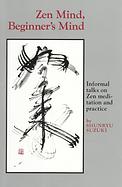A Paradox of Sorts…
I like repetition. I like patterns. I like things to stay the same. Perhaps it's because there is security in sameness, or maybe it's that I just really like some things and want them to always be the same, so I can always enjoy them. Either way, repetition is a big part of my life.
And this repetition plays into my music is very strange and unexpected ways. I like to work with rhythm patterns and have them subtly change over time. I like the repetition, but find it interesting to displace say, 1 note, changing the pattern in a small, subtle way. I also like to take the repetition and stretch it out over time, creating a hypnotic, trance-like aura, then dropping that 1 note to create a pattern disrupt, shaking things out of its slumber. That's why being a percussionist is such a great thing for me, because everything I deal with is a pattern in some way.
But there is also a great paradox to my thinking. As much as I love and work with patterns, I also love to work with improvisation, where everything is in the moment. There is both a great sense of freedom, and of danger in improvising. Whereas working with preset patterns is safe and comforting in many ways, improvisation is like walking on the edge of something, aware that at any moment you could misstep and fall.
But even then, improvisation is a curious thing. I feel that if one is a trained musician, like myself, then there really is no such thing as improvisation, because everything I do in the moment is based upon things I have done previously. Whether solo, or in a group situation, I am reacting to my surroundings based upon years of musical training and performance. So even if I play something new, it is only a degree or 2 away from something old, something I have played before.
And I have noticed this with most improvising musicians. After years of working on their music, they still rely upon licks, riffs, patterns that they have developed over time. And their improvisation is really just stringing these ideas together in the moment. So the only real, true improvisation would be to, say, give a 5-year old kid some drumsticks and turn them loose with a set of drums. Without any training, or preconceived notions, this kid would truly be improvising.
The great, late Zen Buddhist teacher Shunryu Suzuki, said in his classic book, Zen Mind, Beginner's Mind, "In the beginner's mind there are many possibilities, in the expert's mind there are few." I always strive to approach my music with a beginner's mind…
~ MB




Well stated Michael. It is thee most difficult thing, forgetting what you know in order to learn something new.
ReplyDeleteIndeed.Sometimes I feel that I know too much and it gets in the way. One antidote is to always try and approach something as if it's the 1st time you've ever done it. Beginner's Mind is the key…
ReplyDelete